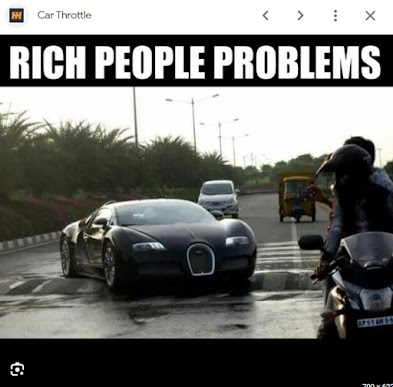I had a strange experience recently. We were sent to clear out a vet clinic after my employer was appointed receiver of the company of which the clinic was a part. By some fluke, we managed to find a buyer for the vet clinic and, as part of the sales process, we had to clear the unit.
However, there was a problem clearing this clinic. It had several containers of used syringes. A used syringe is not normal waste that can be tossed into the bin. Used syringes are classified under “medical waste” and we, the clever people with qualifications and comfortable jobs, didn’t know what to do.
Nobody had a clue as to how to dispose of this stuff until, by some fluke, we saw a member of the town council touring the estate with his contractors. We chatted them up, and the town council rep told us to engage his contractor on a private basis. The Bangladeshi chap knew how to dispose of the stuff, and for a token fee, he got his guy to do the job. Our problem was solved.
The problem was a “rich” person’s problem. Vets around the world are known to make good money. In the UK, there was a quip that it was the smart ones who left medical school to become vets. The reason being, there is no NHS or any form of socialised medicine for pets. Everything is dictated by private enterprise and, funnily enough, people are willing to spend good money on pets to ensure that the pets get the best treatment.
Yet, it was the simple Bangladeshi worker who had the solution. In the Singapore system, Bangladeshi workers are classified as “poor” people. These are the guys who build our homes, keep our roads working, the sideways green and clean.
For the jobs that Singaporeans won’t do, a Bangladeshi
worker would consider himself a lottery winner if he was paid anything more
than $3,000 a month. (As a British friend who works in a shipyard points out, “It’s the Bangladeshi guy who runs the show but gets paid the least.”)
But let’s not go into the conditions that most Bangladeshi workers live in other than to say that Singapore’s explosion of Covid cases came from dormitories inhabited by construction workers. Sadly, the only reaction you’re going to get from many Singaporeans is: “Well, they’re better off here than where they came from.”
This got me thinking. How many of us, who are for all intents and purposes “rich” people, do things without thinking of who bears the consequences.
This is a problem …… if you can afford the car……copyright
Car Throttle
Take the debate on climate change and rising sea levels. Look at who are the people denying that climate change and rising sea levels are an issue. For the most part, they live in the “rich” part of the world like the USA and Europe.
This lot will inevitably feel most at home in gatherings of members of the Republican Party, which has infamously been funded by the oil industry. Ask any of these people if they think that climate change is real and they’ll tell you that it’s a “hoax” invented by left-wing members of the “wokerati”. They will “rubbish” any discussion on the move to renewable energy and continue to guzzle fuel through high-consumption cars and private jets.
As long as this crowd can use their jets like there’s no tomorrow, climate change is, at best, a topic that gets certain Swedish teenagers all worked up.
Let’s look at the other end of the scale. The people who know that climate change and rising sea levels are very real, happen to live on the insignificant atolls in the Pacific Ocean. These are “poor” people that nobody cares about.
Whenever people in the rich world are told they may need to
give a bit of room to people from places like this, they will scream for
greater border controls to keep the poor people out without any thought that their actions may be driving the latter to seek refuge in richer, safer countries less prone to anarchy and climate change.
Let’s go back to the example of the Bangladeshi who solved my disposal issues. Do people really care about him? This is a man who works day in and day out to solve our problems. He keeps the trash bins empty and our common spaces clean. We have no “cleanliness” issues because of people like him.
Yet, we don’t care about him. When he goes back to his dormitory, we think of him as a “darkie” who should bless the day we allowed him to clean our crap.
We keep seeing the poor as a problem. Poverty is something that needs to be solved and there have been plenty of innovations to make life easier for the poor.
There are many people trying to help the poor and needy, and these efforts need to be commended. However, shouldn’t we also work at understanding that our actions have consequences and these consequences are not always borne by us but, more often than not, by the less fortunate?
A version of this article first appeared at beautifulllyincoherent.blogspot.co



